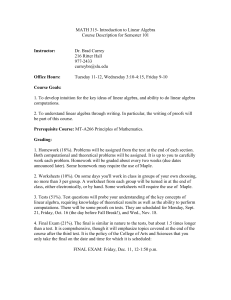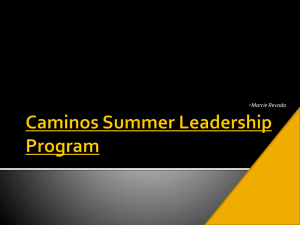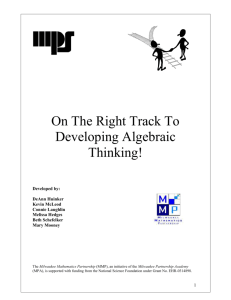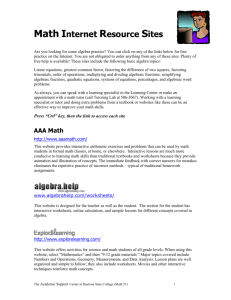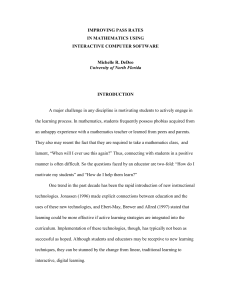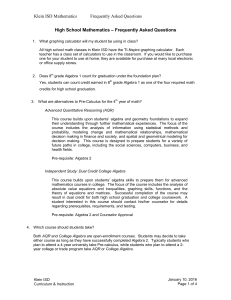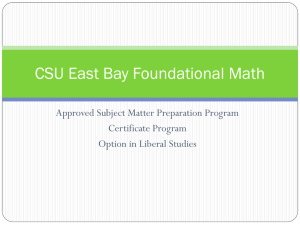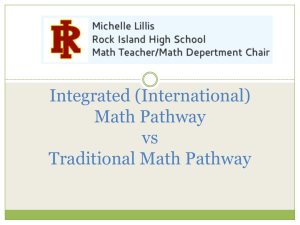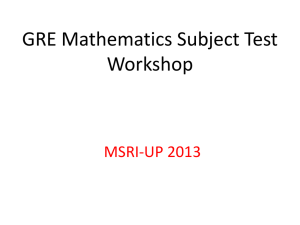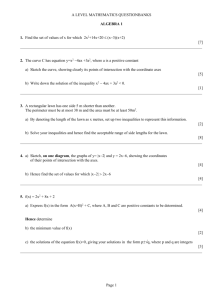Meet the Teacher Night powerpoint
advertisement
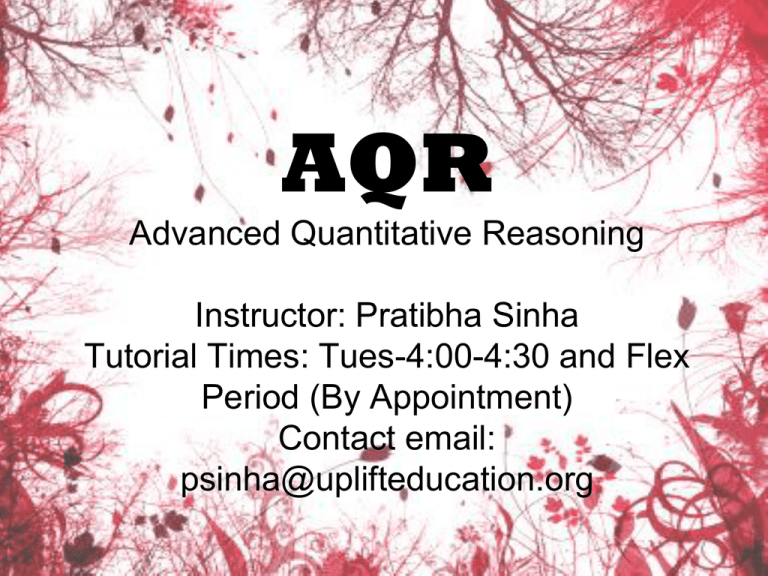
AQR Advanced Quantitative Reasoning Instructor: Pratibha Sinha Tutorial Times: Tues-4:00-4:30 and Flex Period (By Appointment) Contact email: psinha@uplifteducation.org What is AQR? • Advanced Quantitative Reasoning (AQR) is a course in • mathematics, statistics, and modeling for students who have completed Algebra I, Geometry, and Algebra II—or Integrated Mathematics I–III. Aims of the AQR Course • to reinforce, build on, and solidify the student’s working knowledge of middle grades mathematics through Algebra I, Geometry, and Algebra II • to develop the student’s quantitative literacy for effective citizenship, for everyday decision making, for workplace readiness, and for postsecondary education • to develop the student’s ability to investigate and solve substantial problems and to communicate with precision • to prepare the student for postsecondary course work in STEM and non-STEM fields AQR Course Outlines… examples, exercises, and increasingly involved projects and presentations Four parts • Number and Quantity • Statistics and Probability • Modeling with Algebra and Functions • Decision Making in Finance Grading The percentage breakdown: • 50% Projects/Tests • 30% Team Participation/Daily Grades • 20% Quizzes/(Small)Presentations COURSE EXPECTATIONS Work collaboratively to learn HOW the math works Students take personal responsibility for gaining knowledge It’s the process not the answer! EXPECTATIONS FOR STUDENTS All students will actively participate in class. All students will present work to class. All students will present work that reflects their best abilities. All students will be responsible to complete any outside work. All students will be challenged. All students will experience successful problem solving. WHAT PARENTS CAN EXPECT Frustrated Students MAJOR Projects Fewer Tests Students Prepared for College Level Work! Sample Tasks Fermi question • Roughly how many basketballs would it take to circle the Earth at the equator? Probability task • Drug testing. Suppose a recent national study indicates that about 3% of high school athletes use steroids and related performanceenhancing drugs. • Suppose further that the accuracy of the standard test used is roughly 97%. That means that 3% of the time, the test returns an incorrect result (either a false positive or a false negative). • What is the probability that a randomly selected student athlete who tests “positive” is actually a user of performance-enhancing drugs? Designing and conducting a statistical study • Is a DoubleStuf® Oreo cookie really double stuffed? DID YOU KNOW… There is a ratio that measures beauty? Changing the size of your tire makes your speedometer read incorrectly? UPC codes have a check digit to make sure they are entered correctly? QUESTIONS OR CONCERNS?
